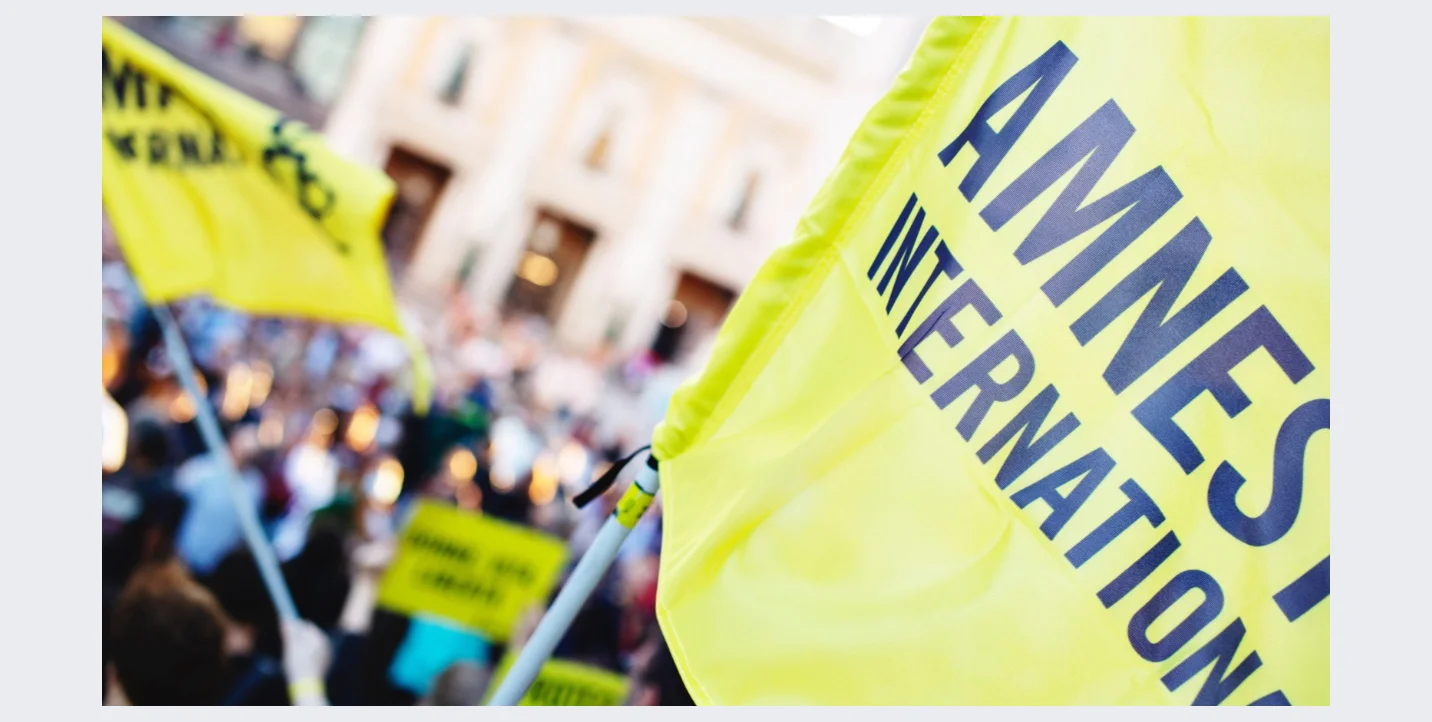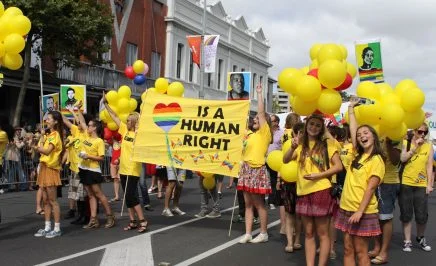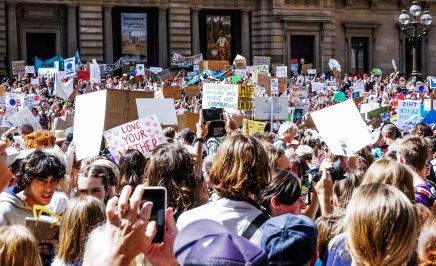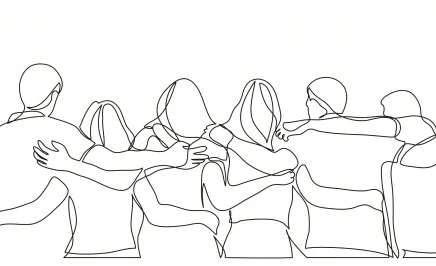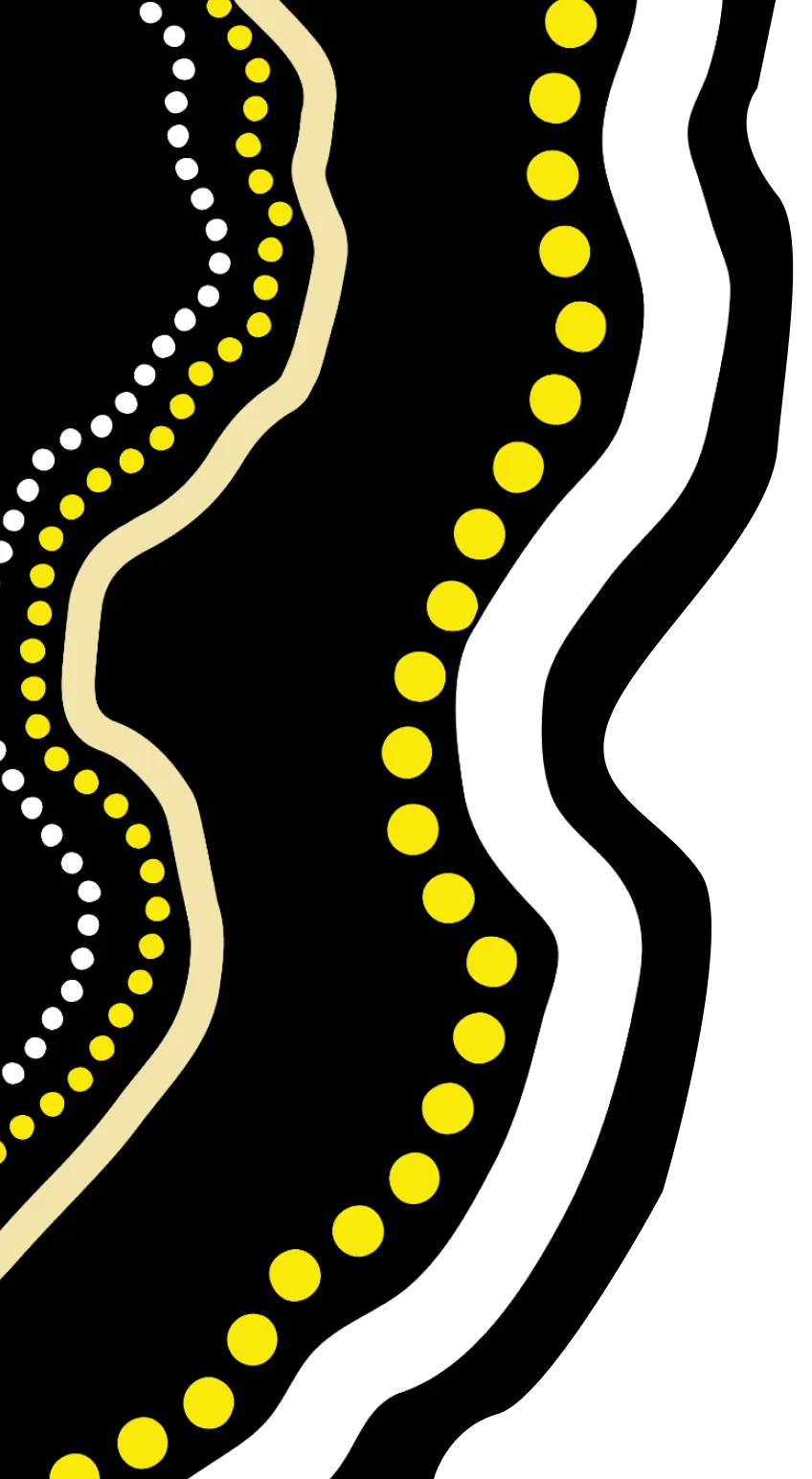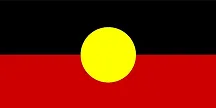Accessibility – The Amnesty International website has built in accessibility tools to help ensure that our activism is inclusive. To open the accessibility menu click on the accessibility icon located at the bottom right of your screen.
In Australia everyone’s human rights should be protected. But, right now our rights are only protected by a patchwork of laws that fail to adequately prevent human rights abuses. Without overarching federally legislated protections there are few avenues for people to challenge human rights abuses, and few remedies available to those who suffer human rights abuses in Australia today.
After a decade of inaction, we have an opportunity to ensure our human rights are protected by law in Australia. We know that 73% of Australians support introducing a Human Rights Act to protect our Human rights in law. Together, we can make this a reality.
Why do we need a Human Rights Act?
We have an opportunity to make real progress on human rights protections and introduce a human rights act for Australia. Visit this page to find out more about why we need a Human Rights Act and why we currently have an opportunity to achieve this.
If you would like to learn about the practical uses of a Human Rights Act, the Human Rights Law Centre has produced an excellent guide with 101 examples. These examples include real life uses of Human rights Acts/Charters in Victoria, Queensland and the ACT, while highlighting the need for a national Act. Read it here.
Theory of Change
How we will gain an Australian Human Rights Act
To authentically campaign for a Human Rights Act that will protect everyone in Australia we need to listen to (and work with) those who are most impacted right now. Doing so will allow us to build a stronger movement with a clear, unified direction, increasing our likelihood of success.
To ensure that we are building a strong movement while authentically engaging with communities and using the most current information available, the campaign is designed in three overlapping phases. These are described below.
1 – Engage with your community to raise awareness and build support for a national Human Rights Act
Today, 85% of people in Australia don’t know that Australia doesn’t have a Human Rights Act!
We need to work with and listen to those most at risk of human rights abuses so their voices are informing our campaign and are a central part of the movement in support of a Human Rights Act. Working together, we can raise a massive amount of support for a Human Rights Act that protects all of us.
2 – Utilise the movement to engage with our Federal politicians and show them that the majority of Australians want a Human Rights Act
The government has many competing priorities, so we need to show them that this is very important for people and communities across Australia. We can show politicians that there is overwhelming support for a Human Rights Act, ensuring that this change is created.
3 – (Right Now) – Keep organising and mobilising with what you have built in phases 1 and 2, and work with the community to ensure that a National Human Rights Act contains protections from all human rights abuses when introduced to Federal Parliament
When the government understands that a Human Rights Act is a priority for people in Australia, we will work with our communities to pressure them to introduce a Human Rights Act in the Federal Parliament.
Amplifying the voices of those who are most at risk in our communities, we will ensure that the Human Rights Act contains comprehensive and consistent protections against human rights abuses.
How To Get Involved
Phase 1 – Engage with your community to raise awareness and build support for a national Human Rights Act
1 – Sign and share the petition
- Sign the petition for an Australian Human Rights Act
- Share the petition on Facebook or X.
- Download a printable version of the petition to take an event, or host your own (event resources can be found here)
2 – Organise a Community Listening Event
To successfully build this movement together, we need to understand the needs and experiences of the community by authentically listening to them. It takes people like you to bring our communities together and create a movement that can effect change. Community Listening Events are designed to allow impacted communities to tell us what they need. This will directly influence the direction of the campaign.
Are you interested in holding a Community Listening Event in your region? You can get started right now.
- Use this online search tool to connect with your local action group or contact your region’s Activist Leadership Committee to connect with other activists and organise a community Listening Event together.
- Work together to invite people from your communities and those with lived experience to a community listening event. These will inform the direction of the campaign with relevant and current information from the people most best placed to create change.
Here are the essential resources you’ll need:- Guide to organising a community listening event (including background slides and guiding questions)
- *NEW* Talking about a Human Rights Act: Campaign information & talking points
- Guide to Diversity, Inclusion and Wellbeing
- Participation Protocol: A guide to including people with lived experience in our work.
- Additional resources can be accessed by clicking here to request access.
- Join an online training session. These will provide you with the information and insight you need to confidently run a well prepared and authentic listening event. To find out when the next training session is taking place, check the Activism Planner.
Phase 2 – Utilise the movement to engage with our Federal politicians and show them that the majority of Australians want a Human Rights Act
We are currently in phase 2 of the campaign, which is powered by those involved in phase 1. This will ensure that we are as powerful as we can be with the most relevant and up to date information when we approach people in positions of power.
MP Engagement
A face-to-face meeting with your MP is a powerful way to get your voice heard and represented. You can request a meeting with your MP on your own, with a small group of like-minded people in your local community, or as part of an Amnesty Action Group, if there is one in your area.
There are 120 Amnesty action groups covering the majority of electorates around the country. For Amnesty action groups, having an ongoing relationship with your local MP is critical.
As an Amnesty action group, you have the power of representing all the Amnesty supporters in your community which may make your MP more willing to meet with you. If you would like to know how many Amnesty supporters are in your electorate please contact activism@amnesty.org.au.
Send a request to your MP by email first. You can follow up with a phone call if you don’t hear back within a week. The following are some tips for engaging with your MP through:
Here is a guide to MP engagement
Phase 3 (Right Now) – Keep organising and mobilising with what you have built in phases 1 and 2, and work with the community to ensure that a National Human Rights Act contains protections from all human rights abuses when introduced to Federal Parliament
With the successful implementation of phases 1 and 2, phase 3 will be focused on escalating what we have built in the earlier two phases. Our focus will be to gain more momentum and ensure that any Act that is introduced contains the protections that people in impacted communities have asked for. We will do this by working with these communities and amplifying their calls.
On 30 May, the Parliamentary Joint Committee on Human Rights, handed down their report on their Inquiry into Australia’s Human Rights Framework. The report included an exciting recommendation for Parliament to legislate a Human Rights Act.
This recommendation means we’re one step closer to protecting all our rights in law. Now, we need the Albanese government to agree to the inquiry recommendation and commit to legislating a Human Rights Act.
We know that 3 in 4 people support the government legislating a Human Rights Act. To get them to commit to legislation an Act, Members of Parliament need to hear that their constituents support a Human Rights Act and want them to legislate one. The Committee referenced submissions from Amnesty supporters. More information on this can be found on our blog post here.
Next steps for this campaign:
- Tell your MP that you support a Human Rights Act now!
- Invite community members you have engaged with to contact their MP too!
Resources Index
All resources linked to in the Human Rights Act Activist Toolkit can be found below. This list will be updated with relevant resources with the roll-out of each phase.
- Organising team contact – aira.firdaus@amnesty.org.au
- ALC contact information
- Local Action Group contact information
- Participation Protocol: A guide to including people with lived experience in our work
- Guide to organising a community listening event (including background slides, guiding questions and organising checklist)
- Request access to the additional Community Listening Event resources.
- Guide to MP engagement
- Guide on maintaining Amnesty’s independence
- Amnesty International Australia Brand Resources
- Submit a form for assistance from activist communications team
- Using digital tools for activism
- Events & Tactics: Part 1 – Planning
- Events & Tactics: Part 2 – Coordination
- Inclusive language and events guide
- Diversity, Inclusion and Wellbeing Action Plan
- Sustainable Activism and Self Care Guide
Let us know how it went!
- If you have held a Community Listening Event, don’t forget to send your notes or recordings to aira.firdaus@amnesty.org.au.
Safeguarding the well-being of yourself and others
Campaigning for human rights can be difficult. Burnout and vicarious trauma can happen and it’s important to keep a look out for the signs in yourself and your friends. You can check out our Sustainable Activism & Self Care guide as a starting point to ensure that you are looking after yourself and others while doing this important work. It examines how we can better take care of ourselves as activists and what you can do to make sure your activism is sustainable!
As a global movement of 10 million people, and 500,000 people in Australia, Amnesty International has the people power to build public support for a Human Rights Act. Learn more about what are human rights and our Human Rights Act campaign work.
